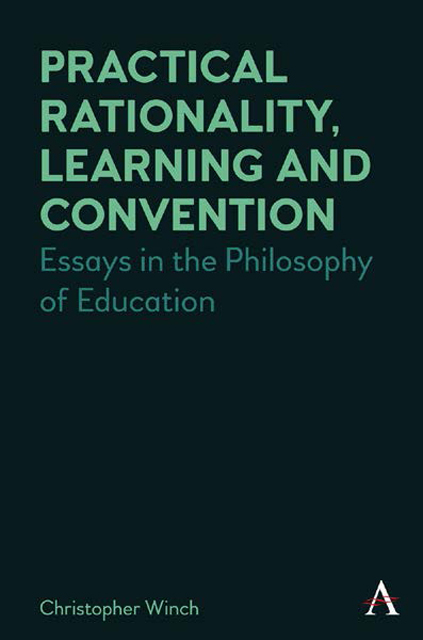Chapter Eight - Education and Broad Concepts of Agency
Published online by Cambridge University Press: 09 December 2022
Summary
Introduction: The General Problem
Debates about know-how and its relationship to knowing that, both in epistemology and in philosophy of education, have tended to be about skills or competences, categories of agency associated with the performance of types of tasks usually involving identifiable and discrete actions, often of a manual or coordinative nature. This is as true of contemporary debate as it is about earlier work deriving from the pioneering example of Ryle. Indeed, Aristotle's discussion of techne was focused on this category of agency, although the discussion of phronesis is explicitly framed in terms of running a household or a state (Aristotle, 1925: 141– 43). Aristotle does not, however, go into detail concerning what such broad agency involves, apart from the exercise of virtue (by contrast, see Kerschensteiner, 1901).
The concern of this article is with a category of agency that writers such as Karl Marx and Simone Weil have drawn attention to in which characteristically human powers are brought together in what is sometimes regarded as the fusion of intellectual and manual capabilities in the pursuit of relatively extensive and self-contained goals (which is not to say that the exercise of skill is not apt for moral evaluation) (Marx, [1887] 1970; Weil, [1949] 1955a, 1955b). This category may itself be divided into two broad subcategories. One of these has received quite extensive attention, namely that of autonomy, or a person's potential to choose ends in life or a course of life and to devise means to pursue such ends (see Callan, 1993; Raz, 1986; White, 1990; Winch, 2005, for discussions of autonomy). While it is clear that such a form of agency requires skill and is apt for evaluation in moral terms, it is also largely concerned with a life course rather than with the pursuit of particular projects. The other category of broad agency is the particular concern of this article and is focused on what one might somewhat misleadingly call project management. Crudely speaking, this involves the ability to make plans and put them into effect. In Marx's words:
We presuppose labour in a form that stamps it as exclusively human.
- Type
- Chapter
- Information
- Practical Rationality, Learning and ConventionEssays in the Philosophy of Education, pp. 105 - 118Publisher: Anthem PressPrint publication year: 2022

